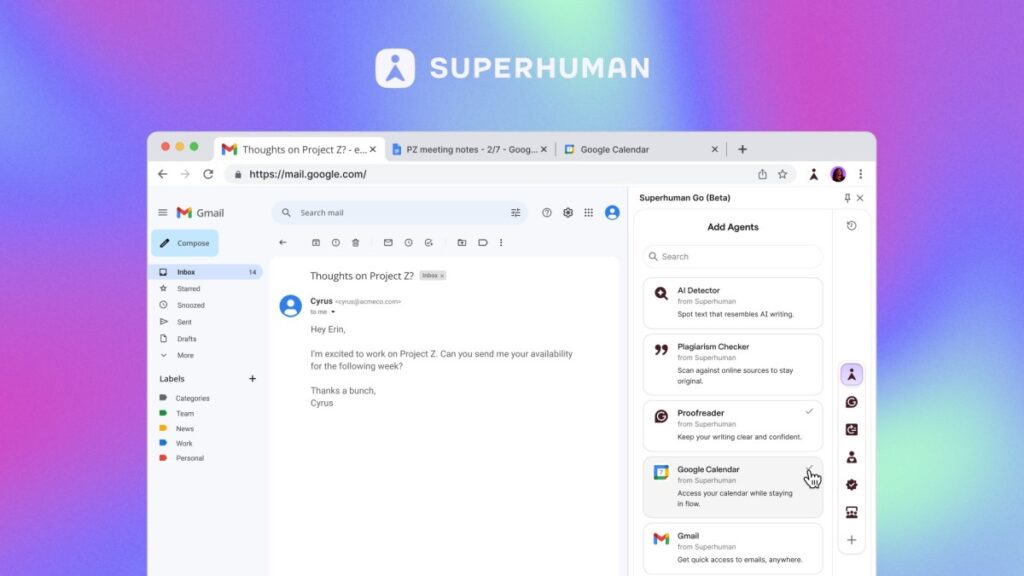Typically, when one company acquires another, it absorbs the new company’s branding or integrates it with its own identity. Grammarly is doing something different. The company changed its name to Superhuman after acquiring email client Superhuman in July.
Despite the rebranding, the product, Grammarly, will continue to be known as always. But in the long term, the company said it is considering rebranding products like Coda, the productivity platform it acquired last year.
The company is also launching an AI assistant called Superhuman Go, which is built into Grammarly’s existing extensions. The Assistant can offer writing suggestions, give feedback on emails, and can also connect with other apps like Jira, Gmail, Google Drive, and Google Calendar to provide more context. Your assistant can use these connections to perform tasks such as logging tickets and retrieving availability when scheduling meetings.

Superhuman said it plans to add the ability for its assistant to pull data from sources like CRMs and internal systems to suggest changes to emails.
Users can try out Superhuman Go by turning on the toggle on the Grammarly extension, which allows it to connect to a variety of apps. Users can also try out different agents in the company’s agent store, including a plagiarism checker and proofreader that launched in August.
All Grammarly users can try Superhuman Go right now, but the company also sells product bundles. Its Pro subscription plan costs $12 per month (billed annually) and enables grammar and tone support in multiple languages. The Business plan costs $33 per month (billed annually) and gives users access to Superhuman Mail.

Superhuman also said it wants to add more AI-powered features to its Coda document suite and Superhuman email client, such as pulling details from external and internal sources to automatically create additional details in documents and email drafts.
tech crunch event
san francisco
|
October 27-29, 2025
Grammarly has made a concerted effort in recent years to increase its viability as a productivity suite, as evidenced through its acquisitions of Coda and Superhuman. This AI assistant puts the company in a better position to compete with the likes of Notion, ClickUp, and Google Workspace, which have released multiple AI-powered features over the past few years.

